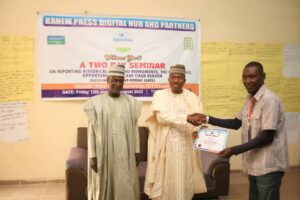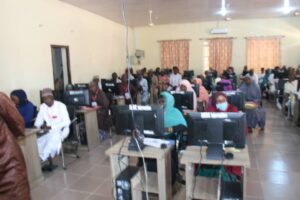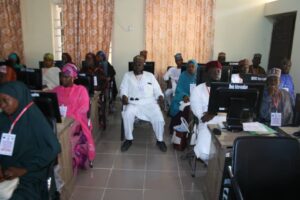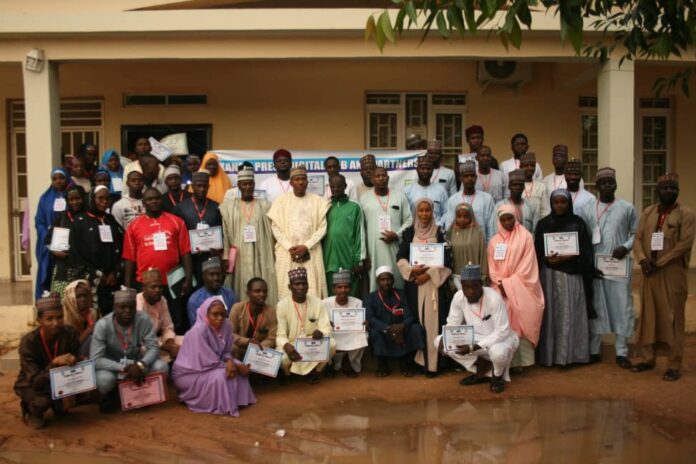A media organisation, Kanem Press Digital Hub and Partners, has organised a workshop for 73 young journalists on the importance of reporting historical sites and monuments in the North-East.
The training held in Damaturu, Yobe State capital also seeks to ensure the preservation and restoration of old historic objects which reflects the history of the people in the zone.
In his opening remarks, the workshop facilitator and president of Kanem Press Digital Hub, Zanna Ibrahim Mustapha, said it has become very imperative to report historical sites and monuments in order to preserve their existence.
 He said a high number of cultural monuments kept in good condition are prerequisites for the development of tourism and the attraction of both local and foreign tourists.
He said a high number of cultural monuments kept in good condition are prerequisites for the development of tourism and the attraction of both local and foreign tourists.
He explained that the training aimed to widen participants’ understanding of how to report historical monuments available in the Lake Chad region.
He thanked Yobe State Government, MacArthur Foundation, and Wole Soyinka Centre for Investigative Journalism, for their support and the necessary assistance during the course of the training.

Also speaking during the workshop, the curator of the National Museum and Monument, Mr Mamza Ralph, explained that monuments create understanding and respect for people that existed in different eras with different habits and traditions.
According to him, the existence of monuments also helps to observe the changes in society for a better understanding of factors that led to the development of current events.
He, however, expressed dissatisfaction with how the Dufuna Canoe (the oldest historic object in Africa) located in Dufuna village of Yobe State is treated.

Mr Ralph thanked Kanem Press Digital Hub for organising the training and urged facilitators to seek government intervention in restoring and protecting cultural heritage.
Another speaker, Dr Adam Kolo, from the department of Mass Communication University of Maiduguri said communication plays a vital role in reviving cultural heritage as it is a privileged vehicle for spreading information, knowledge, and understanding.
He added that community leaders, traditional and religious institutions have great roles to play in restoring and reviving historical monuments in the Lake Chad region.
Speaking to participants, Yobe State director of history and culture, Adamu Talba Lawan, highlighted the sensitive areas to focus on when carrying out reports that involve the historical monument and future opportunities in the region.
He explained that the three methods of reporting historical monuments include: written reporting, graphics reporting, and oral reporting.
Noting that written reporting is the most popular method because it preserves all legal records and serves as a reference source, while graphics reports may be presented in the form of charts, diagrams, and pictures.
According to him, historical reporting makes it feasible to analyse a wider range of variables, granting improved insight into what’s happening across various societies.
He explained to the participants that a combination of written, graphic, and oral reporting may be useful for effective and efficient reporting in any historic setting.
Other speakers at the workshop include: Dr Kyari Grema, Alhaji Modu Bukar, the Director, Arts and Culture Yobe State, and the director of remedial studies at Yobe State University.
Follow the Neptune Prime channel on WhatsApp: https://whatsapp.com/channel/0029Va74ZvU2v1IqKByXoX3d
Do you have breaking news, interview request, opinion, suggestion, or want your event covered? Email us at neptuneprime2233@gmail.com


